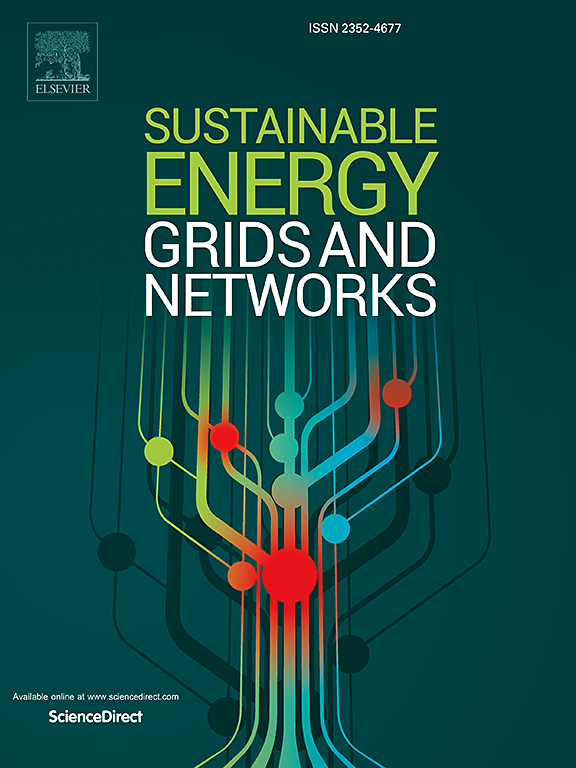基于mpc的隔离交流微电网电池源DERs对有界和无界FDI网络攻击的检测和弹性
IF 4.8
2区 工程技术
Q2 ENERGY & FUELS
引用次数: 0
摘要
在微电网网络安全中,针对虚假数据注入(FDI)网络攻击的检测和恢复方案设计用于处理有界或无界类型的攻击。因此,所提出的控制方案基于降阶模型预测控制(MPC),其中卡尔曼估计和成本函数的协同可以识别针对基于逆变器的分布式能源(DERs)的执行器和传感器的两种FDI攻击。MPC提供快速恢复,不受可变负载和电池能量差异的影响。然而,在FDI攻击恢复后,具有工频下降特性(P-f)的传统共识通常会受到频率波动和功率共享误差的影响。因此,所提出的二次控制系统采用三共识协调设计,其中频率协调仅用于保持同步,电压角协调用于精确的有功功率共享与荷电状态(SoC)平衡,电压协调用于电池源电压控制的DERs之间的无功功率共享。利用协调方案上的Lyapunov函数分析了协调方案的稳定性和约束条件。在CIGRE欧洲低压试验台上对交流微电网进行了MATLAB仿真。然而,实验验证是基于一个由可编程逻辑控制器(PLC)和具有通用工业协议(CIP)通信的监控和数据采集(SCADA)构建的网络物理系统。本文章由计算机程序翻译,如有差异,请以英文原文为准。
MPC-based detection and resilience against bounded and unbounded FDI cyberattacks in isolated AC microgrid with battery-source DERs
In microgrid cybersecurity, the detection and resilience scheme against False Data Injection (FDI) cyberattacks is designed to handle either a bounded or unbounded type attack. Thus, the proposed control scheme is designed on reduced-ordered Model Predictive Control (MPC), where the collaboration of Kalman estimation and cost function can identify both kinds of FDI attacks targeted on the actuator and sensors of the Inverter-based Distributed Energy Resources (DERs). The MPC provides quick recovery and is unaffected by variable load and battery energy dissimilarity. However, after resiliency from FDI attacks, a conventional consensus with power-frequency droop characteristics (P-f) usually suffers from frequency fluctuation and power-sharing error. Consequently, the proposed secondary control system is designed on a three consensus coordination, where frequency coordination is only used to maintain synchronism, voltage angle coordination is designed for accurate active power sharing with State-of-Charge (SoC) balancing and as usual, the voltage coordination is for reactive power sharing among battery source voltage controlled DERs. The Lyapunov function on coordination schemes is used to analyze the stability and constraints. The performance includes MATLAB simulation of an AC microgrid built on a CIGRE European LV testbed. However, experimental validation is based on a cyber-physical system built with a Programmable Logic Controller (PLC) and Supervisory Control and Data Acquisition (SCADA) having a Common Industrial Protocol (CIP) for communication.
求助全文
通过发布文献求助,成功后即可免费获取论文全文。
去求助
来源期刊

Sustainable Energy Grids & Networks
Energy-Energy Engineering and Power Technology
CiteScore
7.90
自引率
13.00%
发文量
206
审稿时长
49 days
期刊介绍:
Sustainable Energy, Grids and Networks (SEGAN)is an international peer-reviewed publication for theoretical and applied research dealing with energy, information grids and power networks, including smart grids from super to micro grid scales. SEGAN welcomes papers describing fundamental advances in mathematical, statistical or computational methods with application to power and energy systems, as well as papers on applications, computation and modeling in the areas of electrical and energy systems with coupled information and communication technologies.
 求助内容:
求助内容: 应助结果提醒方式:
应助结果提醒方式:


